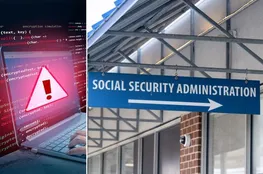The notorious ransomware group BianLian has taken responsibility for a recent cyberattack on Boston Children's Health Physicians (BCHP). Though the exact ransom demand and the deadline for payment remain unclear, the breach has triggered significant concern among healthcare security experts and the public. BCHP announced on September 6 that they had detected unusual activity. By September 10, they had shut down their systems after discovering unauthorized access within their network. The breach reportedly exposed sensitive information, including patient, employee, and guarantor details.
Compromised data includes social security numbers, medical record numbers, health insurance information, billing details, and personally identifiable information such as full names and dates of birth. "BianLian's actions signify a dangerously escalating trend in cyber threats targeting healthcare organizations," experts noted. The group claims to possess a vast cache of finance and HR records, health records, insurance information, and email communications concerning the pediatric patients served by BCHP.
The targeting of healthcare entities has become alarmingly frequent, largely due to the sensitive data they hold and the critical nature of their operations. While attacks on hospitals are not new, the targeting of an institution focused solely on children's healthcare is particularly unusual and largely considered morally indefensible by many ransomware groups. For instance, the infamous group Lockbit issued a public apology following a previous attack on a children's hospital in Canada. They acknowledged that the attack violated their ethical guidelines, subsequently removing and banning the responsible affiliate.
Lockbit even provided the decryption tool for free, emphasizing that they prohibit their affiliates from encrypting endpoints critical to saving lives. This incident underscores how critical it is for healthcare providers and their patients to navigate cybersecurity challenges effectively. By taking proactive measures, such as employing top-notch malware removal software and using reliable business VPNs, organizations can bolster their defenses against looming cyber threats.
Additionally, it highlights the importance of continuous education and adaptation to the rapidly evolving landscape of cybercrime, ultimately protecting vulnerable data and maintaining operational integrity in times of crisis.
























